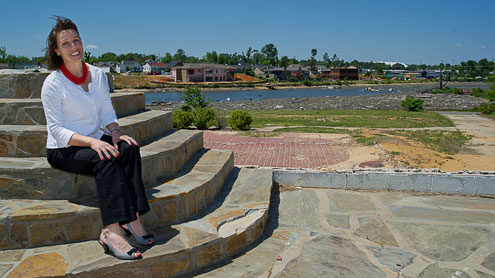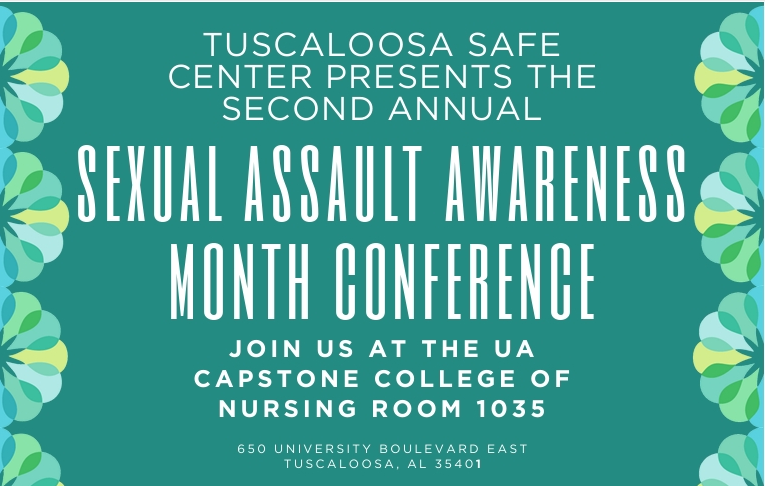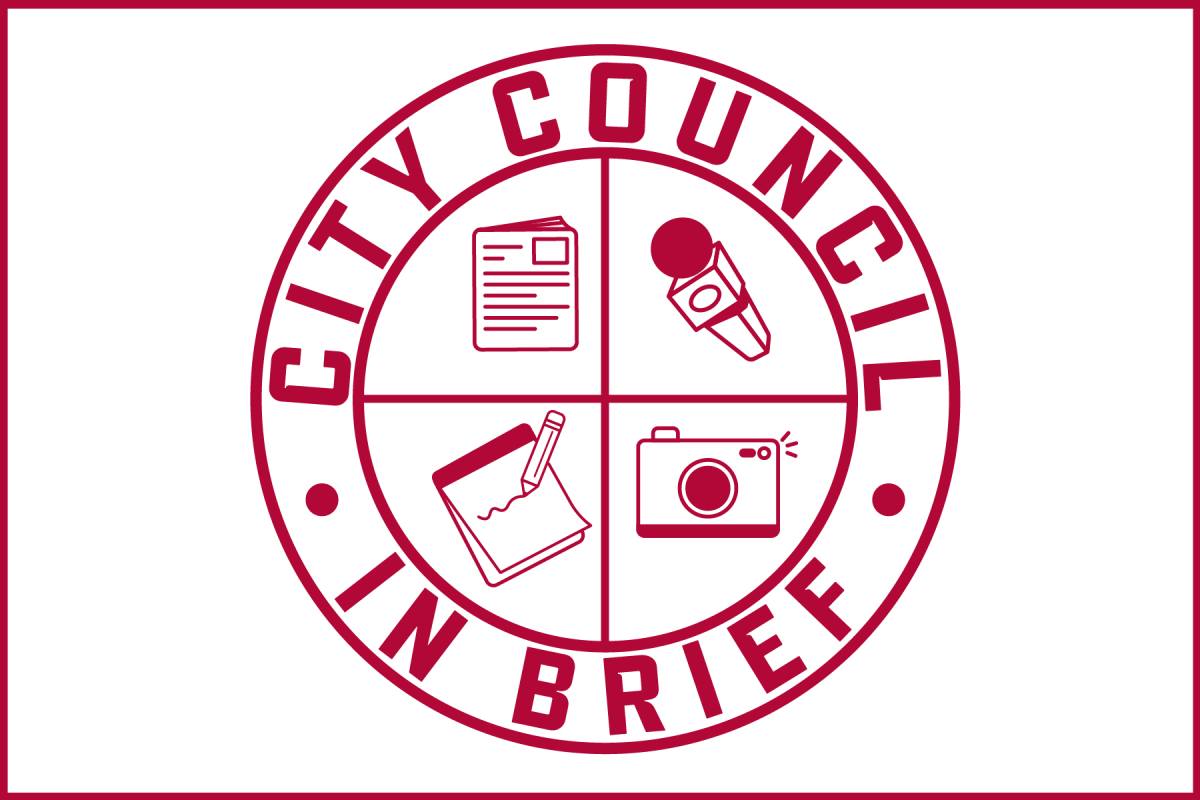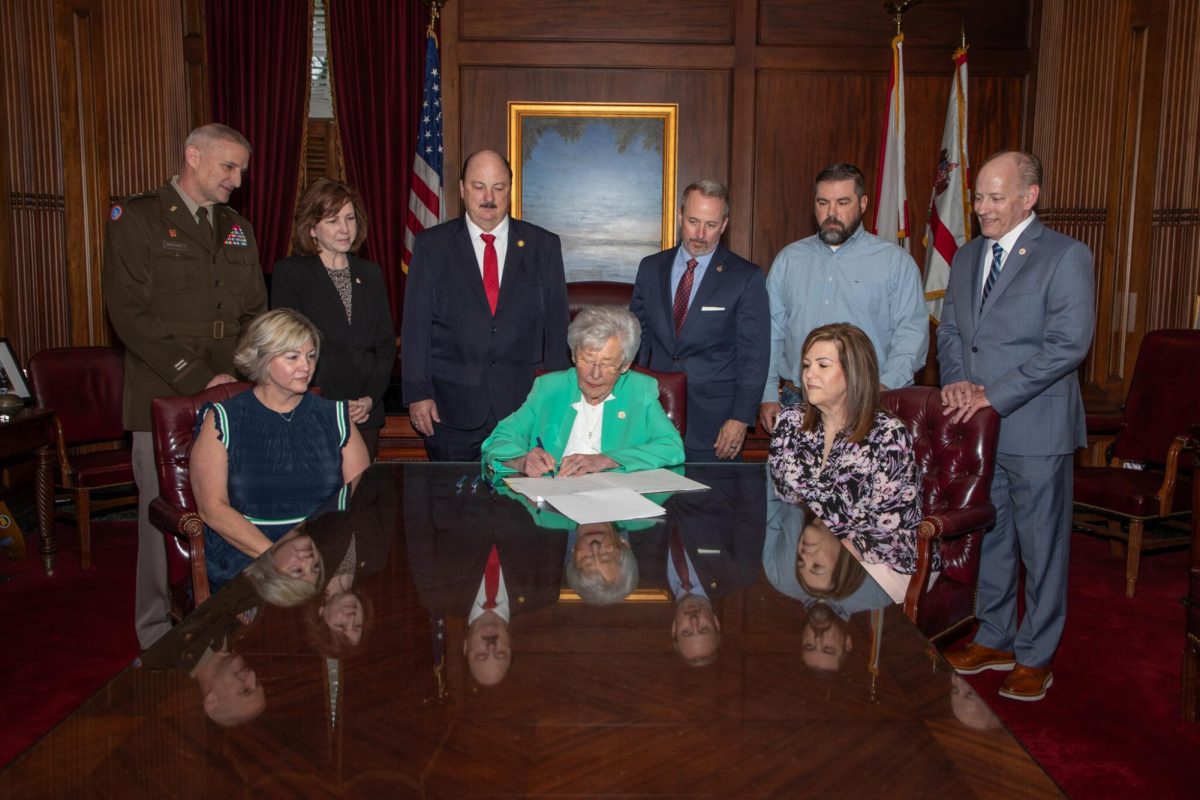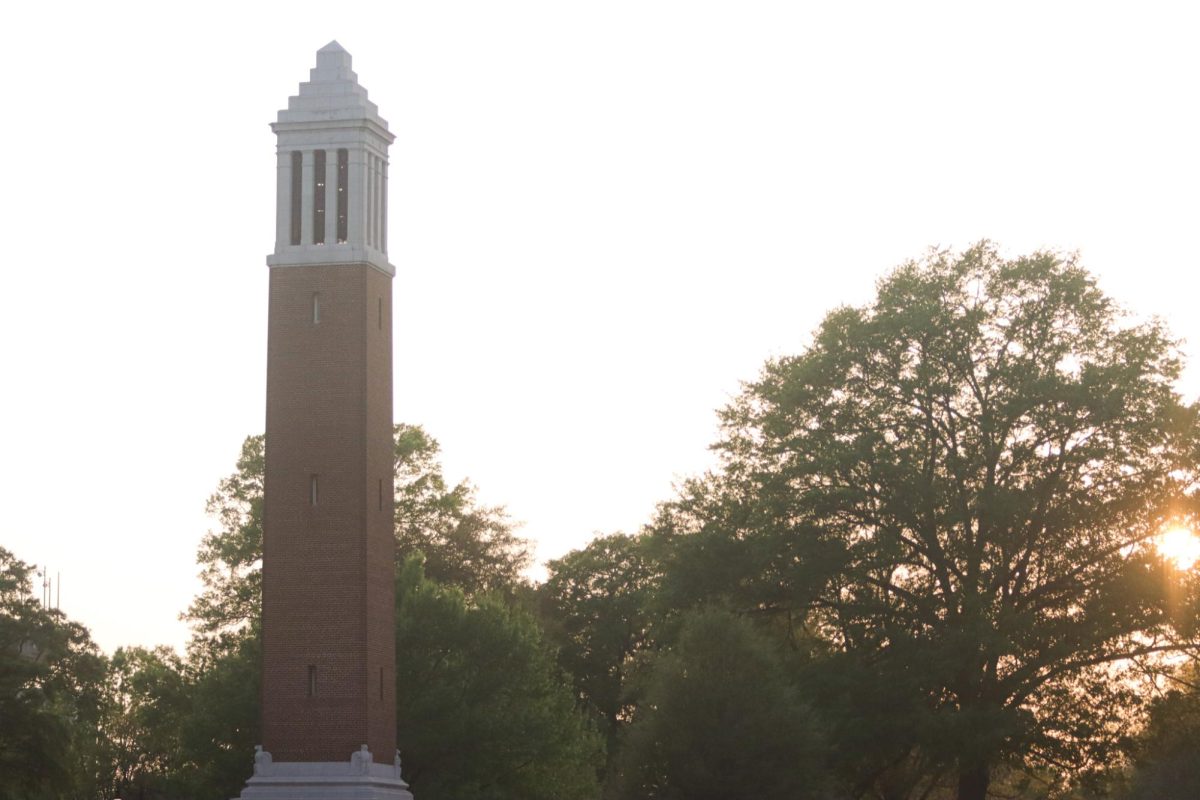Staff Reporter
jrcissell@crimson.ua.edu
It’s Saturday morning, and Linda and Robert Parsons are inside the Starbucks at Midtown Village, each carefully sipping a steaming cup of coffee. This caffeinated start to the morning has been the Forest Lake residents’ long-running weekend routine. But in the past year, the ritual has been significantly altered.
“I used to be able to just get up in the morning and walk over to Starbucks for some coffee before my morning stroll,” said Linda Parsons, a UA accounting professor and secretary of the Forest Lake Neighborhood Association. “Now, we usually drive over on the weekends, get some coffee and check on the neighborhood.”
It’s a trivial modification to a commonplace routine, perhaps, but nevertheless a testament to April 27, 2011’s pervasive and lasting metamorphosis of every aspect of the lives of Forest Lake residents.
The tornado destroyed the second floor of the Parsons’ home and damaged the first beyond repair, forcing them to demolish what was left and move away temporarily while rebuilding plans are set in order. Robert Parsons was taking shelter in his basement when the storm hit.
“I didn’t hear any trains or airplanes. To me, it sounded like ten thousand tennis balls flying into the house on all sides,” he said. “When I walked out of the garage, I thought I was hallucinating. I had to go into the garage and come back out to make sure that what I saw was really there.”
What he saw was not the Forest Lake neighborhood that had existed less than a minute before. Homes were reduced to rubble, trees were torn to splinters and ripped from the ground and debris was littered the lake.
Linda Parsons, who had taken shelter on campus, said she left for the house upon receiving a text message from her husband reading, “We’re alive. Neighborhood gone.”
She had been busily writing tests in preparation for finals, but quickly realized more pressing matters had stormed into the queue.
“Everything had to be done at once. We had to find a place to stay. We had to try and salvage what we could from our house and then find a storage unit to put it in. We had to let family know that we were all right. And I had those finals to write,” she said. “There was so much to do.”
One year later, there still is. The lake, having been drained to identify and remove debris, is a muddy depression immediately surrounded by a largely barren field, with very few trees to break up the landscape. Excluding some new construction, especially along the western bank, most properties surrounding the lake are empty.
According to Linda Parsons, 24 of the 31 homes that surrounded the lake were completely destroyed on April 27, and the other seven were damaged. Only three homes are currently being reconstructed.
“We still have no idea who plans to rebuild and who is staying,” she said.
For some owners, the rebuilding process has been delayed by conflicts with insurance companies or uncertainties over new flood zoning. Many lots have been kept vacant by internal conflict, residents struggling to decide whether or not they want to return to an area with devastation in its past and a long recovery process in its future.
Other former residents, like Alexa Chilcutt, have already made the decision not to return. Chilcutt, director of the UA Public Speaking Program, and her son took shelter in the Parsons’ basement with Robert Parsons while the tornado destroyed her home next door. Chilcutt and her husband have moved into a home across the river and are working to sell their Forest Lake property.
“I loved living there — it was fantastic,” she said. “The neighborhood had this perfect blend of privacy but being in the city. It was this haven of nature in the middle of town.”
Chilcutt said she and her husband, who owns a building company, have constructed homes before, but aren’t willing to devote the time and energy necessary for the undertaking this time around. With their children either in college or the final semester of high school, the convenience of living within a close proximity to their children’s school is no longer a factor. Additionally, uncertainty over the depth and speed of the neighborhood’s recovery weighed heavily in the Chilcutts’ decision.
“Everything that I loved about it is going to take at least five years to come back,” she said. “I would feel too exposed moving there now. There is nothing. No trees, no homes.”
Chilcutt is not alone in her concern. Even those who have decided to rebuild in Forest Lake admit to nagging doubts about the neighborhood’s future, including the Parsons, who began construction the second week of April.
“You had this diaspora where everybody left and spread out all over the place. It was hard to get in touch with people,” Robert Parsons said. “No one wanted to be the first to move back, because you didn’t know if anyone else was going to, and you’d just be alone there in the middle of a field.”
“In those first few months afterwards, we asked ourselves, ‘Do we really want to come back?’ There were no trees, no neighbors, no community,” Linda Parsons said. “As much as I tried to put on a brave face and exude confidence and convince other people to come back, too, I had that uncertainty in the back of my mind, unsureness over the loss of community.”
Beth Riggs, assistant to the director of the school of Library and Information Studies, still feels like she is camping out in her house, which sustained substantial roof, floor and furniture damage from water and debris during the storm. She said the tornado and the recovery process have served as a catalyst for her development of a deeper personal connection to her neighbors and the community.
“I’ve become more involved in the Neighborhood Association and gone to city hall meetings, which have provided lots of opportunities to get to know my neighbors,” she said. “I was a fairly new resident — I hadn’t even been there for two years – and I hadn’t had many chances to really meet all of my neighbors. This really put it in fast forward. I have a deeper personal investment in the community.”
It’s an investment Chilcutt feels is critical to the neighborhood’s successful, if slow, recovery — a renaissance she, Riggs and the Parsons know is within reach.
“To come back, they have to be morally invested in the long term building-back of the neighborhood,” Chilcutt said. “It will never be the same as it was before, but when Forest Lake comes back over the course of the next several years, it will be a great place to live, because the people that are coming back are invested in its long-term recovery and full of care and love for the community.”



